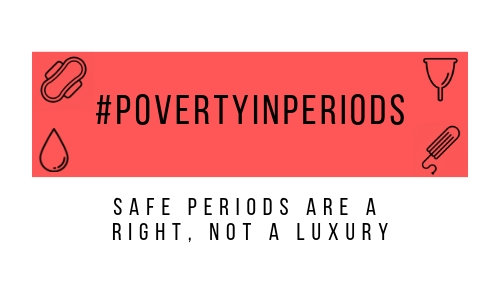By Mia Abeyawardene
Launching a campaign to tackle period poverty in Manchester, 22-year-old Manchester Met journalism student Meliza Sestito, aims to raise awareness around the issues facing homeless women in the city.
The campaign has seen Meliza launch a petition which is “fighting for more donation points for sanitary products for Manchester’s homeless women”.
As statistics show that there are approximately 68,000 homeless women living in the UK, it should be clear that that period poverty is a national problem which needs addressing. With a lack of access to sanitary products, many homeless women reuse sanitary products or attempt to make their own out of clothing items such a socks. Due to these unhygienic methods of dealing with their period, those who do so are at an increased risk of developing toxic shock syndrome which can cause someone’s entire body to shut down.
While many are aware of homeless people’s need for access to food, water, shelter and warmth, their basic hygiene is rarely addressed. As periods are often treated as a taboo subject, conversations about period poverty are difficult to have.
After speaking to homeless women in the streets of Manchester, Meliza notes, “A lot of them have said that those who do offer sanitary products are struggling to meet requests, and often have to ration sanitary products out. This can discourage homeless people who need the products to return, as they feel like they are a burden.”
Period poverty is often discussed with regards to girls and young women having access to education, but the attention is taken away homeless women who in turn seem like an invisible part of society. However, the problem is a vicious cycle since it has been shown that if girls and women miss education as a result of their period, they are at an increased risk of becoming homeless later in life.
During her research, Meliza found that many homeless women were having to make the choice between buying food or buying sanitary products. With regards to the tampon tax, Meliza advocated that “safe and hygienic periods are a right and not a luxury”. She adds, “If you are a vagina-having person, you are going to have a period and you shouldn’t be at a disadvantage for having a period.”
Rosy Candlin, a 24-year-old graduate, launched a similar campaign two years ago called Every Month MCR, which raises money to provide period packs to those most in need. In attempting to convince people of why the issue of period poverty is so important she says, “It’s about giving people back their dignity. People suffer from low self esteem when they are unable to buy such basic necessities.”
Alongside breaking down taboos around menstruation, Rosy advocates for sanitary products to be treated in the same way as contraception in the future, which can be received for free from a GP or sexual health clinic. She asserts that as long as poverty is a prevalent problem in Manchester, period poverty will continue to be a problem until the government or councils across Greater Manchester start an initiative that gives free access to sanitary products.
Follow #PovertyInPeriods for more from Meliza’s campaign and sign the petition over at change.org






Leave a reply